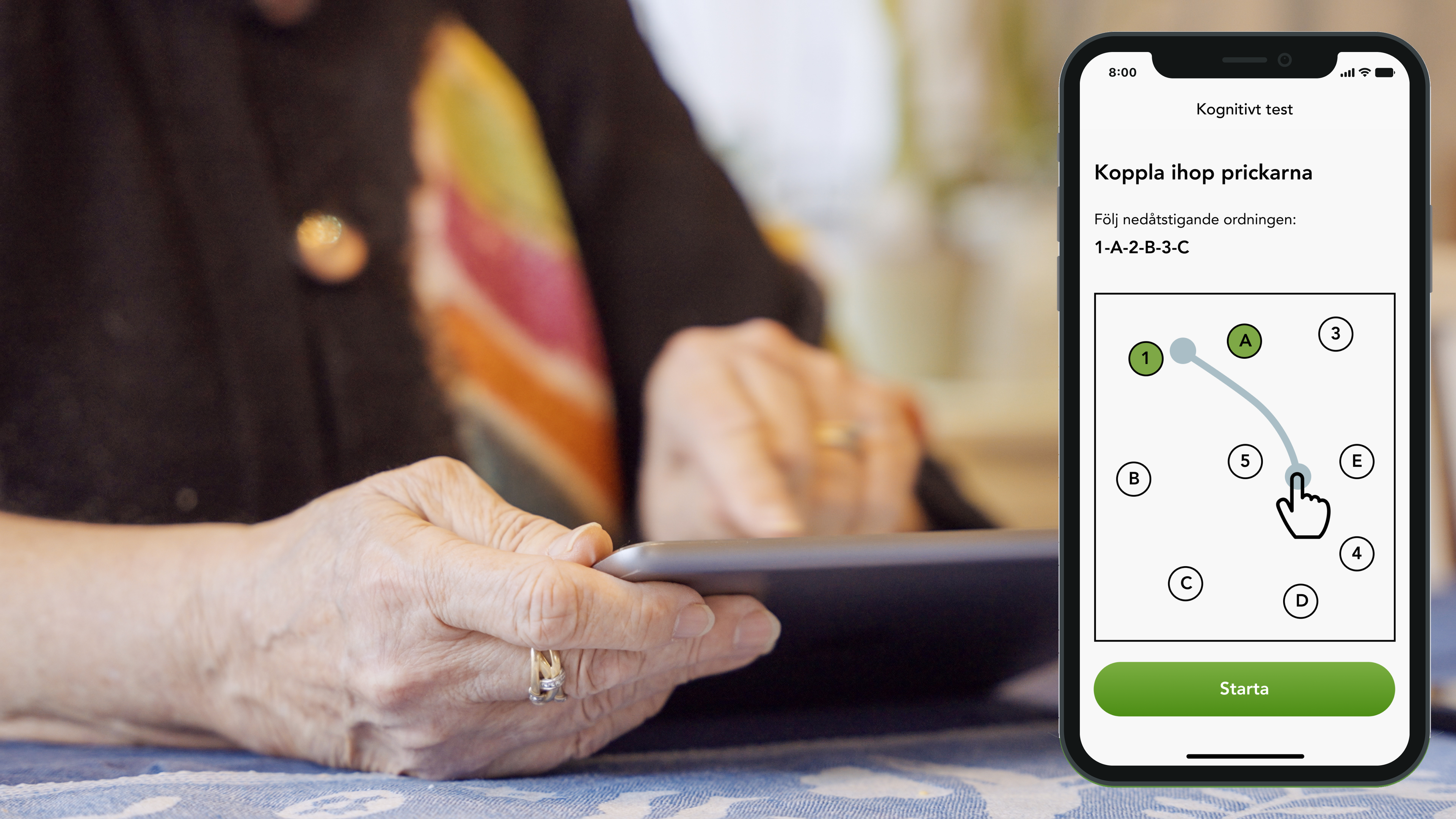
A recently published study conducted at Umeå University has evaluated a digital method for investigating suspected early dementia, such as Alzheimer’s disease. The new methodology is based on the digitization of the established steps involved in a comprehensive investigation. After a few months, an investigation can be started at home – initiated by the patient or with the help of relatives. The initiative is an important piece of the puzzle to enable earlier diagnosis and thus support for the right care and treatment. The study at Umeå University involved 144 people and aimed to evaluate the new digital method. People with different educational backgrounds, IT experience, gender, etc. were asked to complete tests of several cognitive skills using a tablet. In the study, patients were also allowed to carry out testing from home. In addition to valuable data on the accuracy of the test and the effect of e.g. education level, the study showed that testing at home gave equivalent results to testing in a clinic. – The digital test has previously shown good accuracy in identifying possible disease at an early stage. The latest research findings support the method and argue for digital assessment in a clinic or from home. Better accessibility is of great value for those individuals in need of support and treatment, but also to be able to reassure those who carry unnecessary anxiety,” says Victor Bloniecki Kallio, MD/PhD, lead author of the research study. The tool has already been clinically evaluated at Karolinska University Hospital. The Swedish medical technology company Geras Solutions is behind the new method. The method has been developed based on national guidelines and in collaboration with a number of specialist clinics and health centers from across the country. The aim is to establish a new digital standard for the content of the report. In addition to cognitive tests, a comprehensive review of medical history, risk factors, etc. is carried out, as well as screening for other conditions that may cause symptoms similar to those of early dementia. Family members are also involved to digitally contribute their views on the development of symptoms, which is a very important part of the investigation. To make the investigation more accessible, it is now possible to start an investigation from home via Minnesmottagningen.se. The first step is to meet a nurse who introduces the app where the tests are done. This is followed by a review and meeting with a doctor. Depending on the results, additional examinations such as X-rays and blood tests are then carried out at a medical center. Minnesmottagningen.se is now part of the publicly funded health care system as an initiative to increase accessibility and thus ensure that more people receive the right care and treatment in time. – We know that many people do not receive proper memory assessments. By taking advantage of new technologies “With the support of current research, we can contribute in an area where the needs are already very great today. Improved efficiency will also be crucial to meet the needs of the future when new drugs become available and the motivation to seek help early becomes even more evident,” says Mårten Fällman, doctor in charge at Minnesmottagningen.se The study at Umeå University also examined IT habits and user-friendliness. More than 90% of participants in their 70s indicated that they had good experience of using tablets and digital technologies. One advantage that was highlighted with digitized investigation is that it promotes integrity and de-dramatizes an investigation that can sometimes be seen as stigmatizing. Within the framework of the innovation environment PREDEM, run by Karolinska Institutet, further research is being conducted on how Geras Solutions and other innovative tools can be integrated into healthcare. Examples of new technologies include blood-based biomarkers for Alzheimer’s disease, which are also expected to be a crucial component in the timely detection of the disease. – Digital tools for the investigation of suspected dementia are an important complement to traditional investigative pathways and methods. This is particularly important as we expect new drugs to become available soon for the treatment of early Alzheimer’s disease, which will put an increased burden on memory clinics as well as on primary care. “New scientific studies such as this one from Umeå are very welcome and increase the evidence base for new methods,” says Linus Jönsson, Professor of Health Economics at the Department of Neurobiology, Care Sciences and Society at Karolinska Institutet. The study is published in the Journal of Prevention of Alzheimer’s Disease – Link For more information: Victor Bloniecki Kallio [email protected], 0707268220 Anna Nordström, Head of Study Environment at Umeå University [email protected], 0706064249 Mårten Fällman [email protected], 0703317488 Rickard Forsman, CEO of Geras Solutions [email protected], 0737075918 Linus Jönsson [email protected], 0708673522
You are welcome to come and see us at the address below.
Our office is located at the Vasastan office in Convendum.
